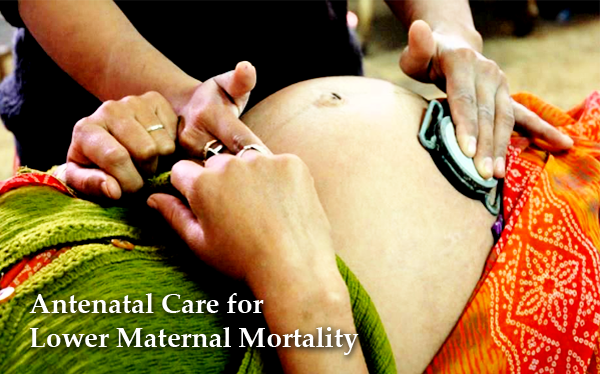As explained by WHO, Maternal death is the death of a woman while pregnant or within 42 days of termination of pregnancy, irrespective of the duration and site of the pregnancy, from any cause related to or aggravated by the pregnancy or its management but not from accidental or incidental causes.
Even in a rapidly developing country like India, maternal mortality rate is a concern. In 2010, the maternal mortality rate in India was 220 in 1,00,000 births which declined but not very much in 2013 with 190 in 1,00,000 births. With reference to this, Ruth Sally Kodam shares with OoWomaniya, the importance of Antenatal care for each pregnant woman that will help in a big way in contributing towards decreasing maternal mortality rates.
Antenatal care is basically the care given to a pregnant woman from conception until they deliver their live babies. The main aim of antenatal care is to promote the health of the woman whilst she is pregnant, screening her to detect and treat abnormalities that can be detrimental to the health of the mother and baby and finally to make sure the woman delivers a live healthy baby without any complications and disabilities.
It is recommended that pregnant women make their first visit immediately to their Gynecologist/ Maternal 
The benefits of going for antenatal checkups cannot be over emphasized. Some are listed below
- It helps in the early detection of abnormalities that can affect the pregnant woman and her unborn baby through screening tests, (genetic or serum tests) and effective monitoring.
- It creates an avenue where women can meet with each other, share their experiences and also support each other.
- Questions and misconceptions of the pregnant women will be answered.
- The family, especially the mother is also prepared on how to take care of the new baby when it arrives, for example how to bath the baby, etc.
- Most importantly the women are educated and guided correctly on nutrition, personal hygiene, nutrient deficiency (if any), rest and exercise during pregnancy among others.
- The baby is also monitored carefully via Ultrasonography technique to make sure that it is in good condition and also any abnormality like fetal growth restriction is detected and the necessary interventions can be done.
Although there are so many benefits of attending antenatal clinics, there are still many countries that have not been able to make antenatal care accessible to women in their countries and I believe, this is an infringement on their rights as women. Women have the right to quality health care, the right to live and also the right to be respected. It has become so evident that countries with higher coverage of antenatal care have a reduced maternal and child mortality rate as compared to countries with a low coverage of antenatal care for its pregnant women. Below are some of the countries compared;
The United States provides antenatal care for 97.4% (2009) of its pregnant women and has a maternal mortality rate of about 28 per 1,00,000 live births (2013). France provides antenatal care for about 98.9% of their pregnant women and has a maternal mortality of 12 per 1,00,000 live births (2013).
In contrast countries with low antenatal coverage have very high maternal mortality rates. Congo provides antenatal care to about 43.80% of it pregnant women as at 2010 and they have a maternal mortality rate of 410 per 1,00,000 live births in 2013. Finally Somalia covers 6.30% of their pregnant women and their maternal mortality stands at 850 per 1,00,000 live births in 2013.
It is now very clear to see that countries that provide antenatal care for its pregnant women to a larger extent have a very low maternal mortality as compared to countries with low coverage of antenatal care. Lots of women lose their lives whilst trying to bring life into the world because they do not get the monitoring, education and healthcare they need whilst pregnant.
It is therefore important for all stakeholders, countries, their governments and organizations including individuals and families to take the issue of providing antenatal care for all pregnant women very seriously, since it has the ability to reduce its maternal and child mortality rate drastically. Research should also be done to help recognize and overcome the barriers that prevent countries from providing antenatal care to its pregnant women. Good antenatal care has the ability to save lives of thousands of women and bring healthy babies to the world. Healthy and well-informed women will translate into a strong economy.
References :
www.guandl.com/health/antenatal-care-coverage-at-least-four-visits-by-country






,